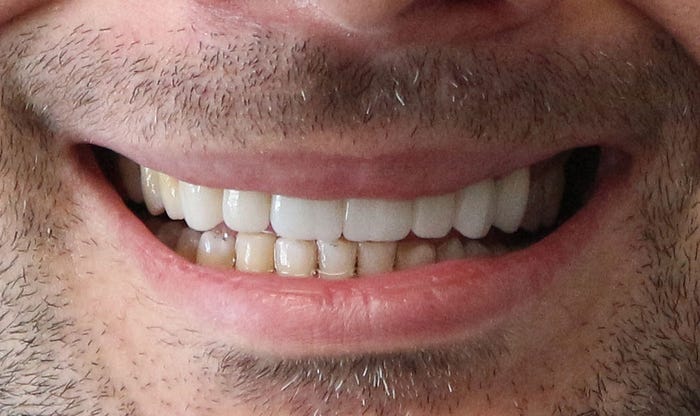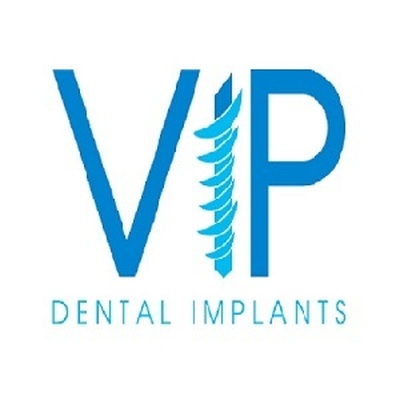More from Dental Implants Dentures
More in Politics
Related Blogs
أرشيف
حصة الاجتماعي
Dentures, Dental Implants, and Denture Implants: Dental Implant Solutions for Missing Teeth
الجسم
At URBN Dental, we understand the impact of missing teeth on your smile, confidence, and overall oral health. Whether you’ve lost teeth due to injury, decay, or other reasons, restoring your smile is essential for both function and aesthetics. In this guide, we’ll explore the various dental implant solutions available, including dentures, dental implants, and denture implants, to help you make informed decisions about your tooth replacement options.
Tooth Loss and Its Consequences
Missing teeth not only affect your smile but can also lead to several oral health issues. When a tooth is lost, the adjacent teeth may shift, leading to misalignment and bite problems. Additionally, the jaw bone may begin to deteriorate in the absence of tooth roots, which can alter facial structure and cause further tooth loss over time.
Traditional Dentures
Dentures have long been a popular option for replacing missing teeth. These removable prosthetic devices consist of artificial teeth attached to a gum-colored acrylic base. Traditional dentures rely on suction or adhesives to stay in place and are typically removed for cleaning and maintenance. While dentures offer an affordable tooth replacement option, they may not provide the same level of stability and function as natural teeth. Many patients report difficulties with chewing and speaking, as well as discomfort from loose or ill-fitting dentures.

Dental Implants
Dental implants represent a revolutionary advancement in tooth replacement. Unlike dentures, which sit on the gums, dental implants are surgically inserted into the jawbone, where they serve as artificial tooth roots. This provides a stable foundation for replacement teeth, mimicking the strength and function of natural teeth. A dental implant consists of three main components: the implant fixture, which is surgically placed in the jawbone; the abutment, which connects the implant fixture to the replacement tooth; and the prosthetic crown, which resembles a natural tooth and is attached to the abutment.
Benefits of Dental Implants:
- Improved Stability: Dental implants fuse with the jawbone through a process called osseointegration, providing unparalleled stability and support for replacement teeth.
- Natural Look and Feel: The prosthetic crowns used in dental implants are customized to match the color, shape, and size of your natural teeth, resulting in a seamless and lifelike appearance.
- Longevity: With proper care, dental implants can last a lifetime, making them a durable and cost-effective tooth replacement solution.
- Preservation of Jawbone: By stimulating the jawbone, dental implants help prevent bone loss and preserve facial structure over time.
- Enhanced Functionality: Dental implants allow for comfortable chewing, speaking, and smiling without the worry of slippage or discomfort.
The Dental Implant Process
The dental implant process typically involves several stages and may vary depending on the patient’s individual needs. Here’s an overview of what to expect:
- Initial Consultation: During your first visit to URBN Dental, we’ll assess your oral health, discuss your treatment goals, and determine if you’re a good candidate for dental implants. This may involve taking x-rays and impressions of your teeth and gums to evaluate bone density and structure.
- Treatment Planning: If you’re deemed a suitable candidate for dental implants, we’ll develop a personalized treatment plan tailored to your specific needs and preferences. This may include the number of implants needed, the type of restoration (e.g., single crown, bridge, or implant-supported denture), and the overall timeline for the procedure.
- Implant Placement: The next step involves surgically placing the implant fixtures into the jawbone. This is typically done under local anesthesia to ensure comfort during the procedure. In some cases, bone grafting or other preparatory procedures may be necessary to optimize the implant site.
- Osseointegration: Following implant placement, the jawbone will gradually fuse with the implant fixture through osseointegration, forming a strong and stable bond. This process typically takes several months to complete, during which temporary restorations may be worn.
- Abutment Placement: Once osseointegration is successful, the abutments are attached to the implant fixtures, protruding above the gumline. These abutments serve as connectors for the final prosthetic restorations.
- Final Restoration: The final step involves attaching custom-made prosthetic crowns, bridges, or dentures to the abutments. These restorations are carefully crafted to match the color, shape, and size of your natural teeth, resulting in a beautiful and functional smile.
Implant-Supported Dentures
For patients missing multiple teeth or entire arches, implant-supported dentures offer a more stable and secure alternative to traditional dentures. Also known as overdentures, implant-supported dentures are anchored to dental implants placed strategically throughout the jawbone.
Benefits of Implant-Supported Dentures:
- Enhanced Stability: By attaching to dental implants, implant-supported dentures eliminate the need for adhesives and provide superior stability and retention.
- Improved Chewing Efficiency: With implant-supported dentures, you can enjoy a wider range of foods without worrying about slippage or discomfort.
- Preservation of Jawbone: Similar to single dental implants, implant-supported dentures help preserve jawbone density and prevent bone loss over time.
The Denture Implants Process
Initial Consultation and Assessment
The denture implants process begins with an initial consultation at URBN Dental, where we’ll assess your oral health and discuss your treatment goals and preferences. During this visit, we’ll perform a comprehensive examination, which may include x-rays, impressions, and other diagnostic tests to evaluate the condition of your teeth, gums, and jawbone. Based on our findings, we’ll determine if you’re a suitable candidate for denture implants and discuss the various treatment options available. We’ll also take the time to address any questions or concerns you may have and provide detailed information about the procedure, expected outcomes, and potential risks.
Treatment Planning and Customization:
Once you’ve decided to proceed with denture implants, we’ll develop a personalized treatment plan tailored to your unique needs and circumstances. This plan will outline the number of implants required, the type of denture restoration (e.g., fixed or removable), and the overall timeline for the procedure. In some cases, preparatory procedures such as tooth extractions, bone grafting, or gum disease treatment may be necessary to optimize the implant site and ensure the best possible outcomes. Our team will coordinate these additional treatments as needed to ensure a smooth and successful implant placement process.
Implant Placement Surgery
The next step in the denture implants process involves surgically placing the Dental implants cost Houston. This procedure is typically performed under local anesthesia to ensure your comfort throughout the surgery. Our skilled oral surgeon will carefully insert the implant fixtures into the predetermined positions within the jawbone, taking care to avoid vital structures such as nerves and sinuses. Once the implants are securely in place, the gum tissue is sutured closed, and temporary denture restorations may be provided to maintain aesthetics and function during the healing period. Most patients experience minimal discomfort after the procedure and can resume normal activities within a few days.
Osseointegration and Healing
Following implant placement surgery, the jawbone will gradually fuse with the implant fixtures through a process called osseointegration. This integration of bone tissue with the implants provides a strong and stable foundation for the denture restoration and typically takes several months to complete. During the osseointegration phase, it’s essential to follow post-operative instructions provided by our team to promote proper healing and minimize the risk of complications. This may include practicing good oral hygiene, avoiding certain foods and activities that could disrupt healing, and attending follow-up appointments as scheduled.
Final Restoration and Adjustment
Once osseointegration is complete, and the implants have fully integrated with the jawbone, the final denture restoration can be attached to the implant abutments. This restoration is custom-made to match the size, shape, and color of your natural teeth, ensuring a seamless and lifelike appearance. Our team will carefully adjust the denture restoration to ensure optimal fit, comfort, and function. We’ll also provide instructions on proper care and maintenance to help you preserve the longevity of your denture implants and maintain optimal oral health.
Comparing Denture Implants Cost
While dental implants and implant-supported dentures offer numerous benefits, it’s essential to consider the associated costs. The final price of treatment will depend on various factors, including the number of implants needed, the type of restoration, any additional procedures required (e.g., bone grafting), and your location. At URBN Dental, we strive to provide affordable dental implant solutions without compromising on quality or patient care. During your initial consultation, we’ll discuss the estimated costs of treatment and explore financing options to help make dental implants more accessible.
Frequently Asked Questions (FAQ)
Are single dental implants more expensive than traditional implants?
The cost of single dental implants versus traditional implants can vary depending on factors such as the number of implants needed, the complexity of the case, and any additional procedures required. While single dental implants may be more affordable for replacing individual missing teeth, traditional implants may offer a cost-effective solution for multiple missing teeth or full arch restorations.
Do dental insurance plans cover the cost of dental implant procedures?
Dental insurance coverage for dental implant procedures varies among insurance plans and providers. While some insurance plans may cover a portion of the cost of dental implants, others may consider them elective or cosmetic procedures and provide limited or no coverage.
Are affordable dentures a suitable alternative to denture implants?
Affordable dentures can provide a temporary solution for replacing missing teeth, but they may not offer the same level of stability, comfort, and longevity as denture implants. Denture implants, also known as implant-supported dentures, anchor to dental implants surgically placed in the jawbone, providing superior support and preventing bone loss over time.
What are bone grafts, and why are they sometimes necessary for dental implant procedures?
Bone grafts involve transplanting bone tissue to augment or regenerate the jawbone, typically in cases where bone density or volume is insufficient to support dental implants. Bone grafts may be necessary to strengthen the jawbone and create a stable foundation for implant placement, ensuring the long-term success of the dental implant procedure.
Are mini implants a viable alternative to traditional implants for tooth replacement?
Mini implants, also known as narrow-diameter implants, are smaller in size than traditional implants and may be used in cases where space or bone density is limited. While mini implants can offer certain advantages, such as reduced surgical complexity and shorter healing times, they may not be suitable for all patients or applications and may require additional maintenance over time.
Can dental implants be used to replace teeth that have undergone root canal treatment?
Yes, dental implants can be an excellent option for replacing teeth that have undergone root canal treatment and cannot be saved due to severe decay, damage, or infection. By replacing the compromised tooth with a dental implant, patients can restore function, aesthetics, and oral health, often with better long-term outcomes than traditional root canal therapy.
Contact URBN Dental for Denture Implants
At URBN Dental, we believe that everyone deserves a healthy, confident smile that lasts a lifetime. Whether you’re missing a single tooth or an entire arch, our comprehensive dental implant solutions can restore function, aesthetics, and overall oral health. Contact us today to schedule a consultation and take the first step toward a brighter, more beautiful smile.









تعليقات